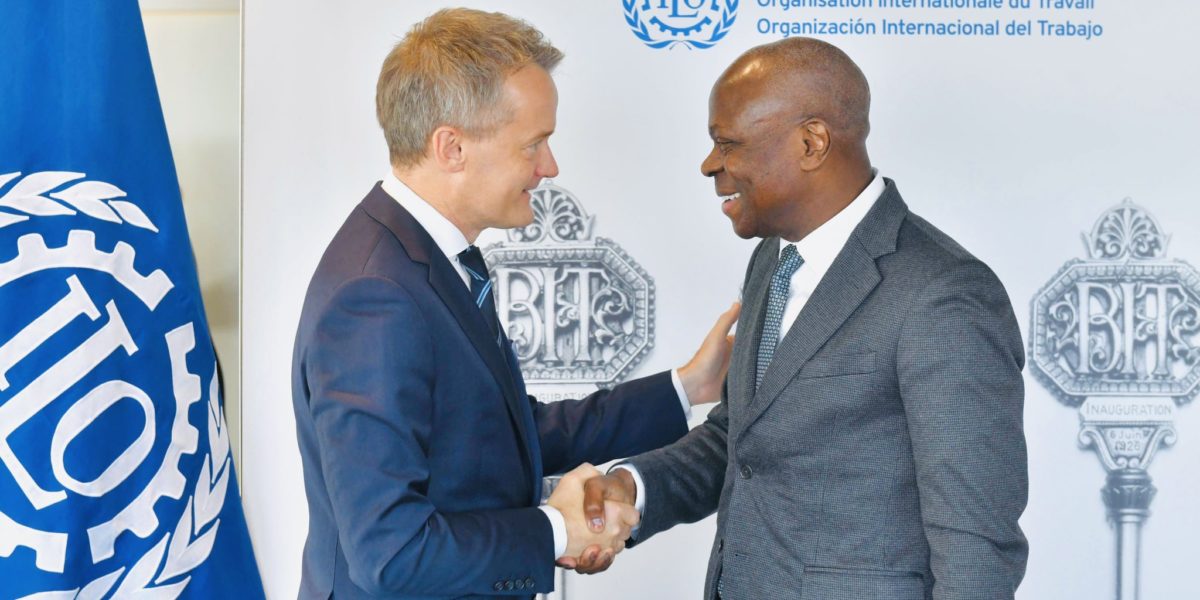Workplace violence is rampant in Canada. A 2022 study found that nearly one in two workers in Canada have experienced sexual harassment and violence in the last two years.
Overall, the national data from the Canadian Labour Congress (CLC) and partners showed seven-in-10 workers have experienced some form of harassment and violence at work.
But the workers who bore the brunt of the abuse in the workplace proved to be the same marginalized groups who face employment discrimination and precarious employment: Indigenous workers, racialized workers, workers with disabilities, and workers in the 2SLGBTQI+ all face more and different kinds of harassment and violence at work.
That’s why Canada ratifying International Labour Organization (ILO)’s Convention 190 to eliminate harassment and violence in the workplace marks a major step forward for the rights of workers.
Canada is the 25th country to ratify the Violence and Harassment Convention of 2019. The federal government has the option to denounce the convention after 10 years.
The internationally-agreed definition of violence and harassment in the world of work relates to “unacceptable behaviours and practices” that “aim at, result in, or are likely to result in physical, psychological, sexual or economic harm.”
Not only does the convention recognize that violence and harassment in the world of work can “constitute a human rights violation or abuse,” it also calls it a threat to equal opportunities, incompatible with decent work, and goes against the need for mutual respect and dignity in the workplace.
The text of the convention states that workplace violence and harassment “affects a person’s psychological, physical and sexual health, dignity, and family and social environment.”
That’s important because, as the convention states, domestic violence can also “affect employment, productivity, and health and safety.”
The Convention will also require Canada to adopt “an inclusive, integrated and gender-responsive approach to preventing and eliminating violence and harassment.”
What will that approach look like? According to the Convention, governments would implement prevention, protection and enforcement measures and remedies, in tandem with guidance, training and raising awareness.
How C-190 protects workers on and off the job
A critical component of C-190 is that it doesn’t just apply to violence and harassment on the job.
It also protects employees during work trips, through any work-related communication, when in employer-provided accommodations, and when commuting to and from work.
That’s in addition to workers who have been fired, volunteers, and job applicants.
By ratifying the convention, Canada will be required to ensure access to remedies and support for victims.
Under the convention, employers are required to weigh violence, harassment and associated psychosocial risk factors as an issue of occupational safety and health.
Employers will also need to implement dispute resolution mechanisms, as well as protection against victimization of or retaliation against complainants, victims, witnesses and whistleblowers.
That’s significant, because the CLC found that one in four workers who reported harassment and violence in the world of work said that coming forward only made the situation worse. Nearly nine out of every 10 workers who experienced harassment and violence were “transferred, suspended, fired, or lost a shift” as a result.
A framework for eliminating workplace harassment and violence
Representing Canada at the ceremony in Geneva, Switzerland, Minister of Labour Seamus O’Regan told attendees that ratifying the convention “is not a ceremonial gesture.”
Rather, O’Regan called it “proof of a deep-rooted commitment… to protect workers, and make sure they have the safe and respectful workplaces they deserve.”
For ILO Director-General Gilbert Houngbo, who served as Prime Minister of Togo from 2008 to 2012, Canada’s ratification of C-190 comes at a critical time.
“The COVID-19 pandemic has indeed increased specific risks of violence and harassment in the world of work,” Houngbo said at the ceremony. “And addressing them is key to promote a human-centered response and recovery that tackles injustice.”
For CLC President Bea Bruske, C-190 gives governments, unions and employers a framework for prevention, and ultimately, the elimination of workplace violence and harassment.
The convention recognizes the right to collective bargaining, while pushing for the elimination of all forms of forced or compulsory labour, including child labour.
Calling the global treaty “groundbreaking and visionary” in a news release, Bruske also referred to it as “practical and actionable.”
“This is truly a convention that leaves no one behind. But to realize its promise and potential, Canada needs a strong plan to implement it in every jurisdiction,” Bruske said. “Canada’s unions are ready to roll up our sleeves and get to work with governments and employers to develop this plan and to make work safer for everyone.”
Unifor, the largest private sector union in Canada, is also celebrating the ratification. After all, Unifor has advocated for Canada to adopt the framework since the ILO adopted it in June 2019.




